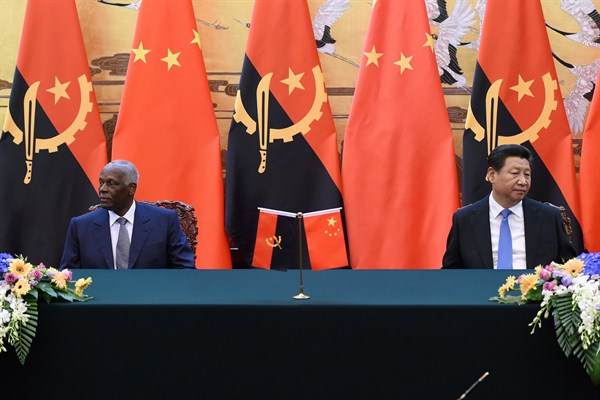During a session of the Angolan parliament late last month, members of the main opposition party, UNITA, boycotted a vote on a private investment law because of concerns over transparency. It was a rare display of dissent against President Jose Eduardo dos Santos, with some UNITA lawmakers questioning the details surrounding recent loan deals with China, struck during dos Santos’ visit to Beijing in June. “How much did our president get from China? Nobody knows. How will we pay for it? Nobody knows,” Raul Danda, a UNITA legislator, told his fellow parliamentarians. “We asked our president to explain what he did in China but the boss does not talk.”
In Beijing, dos Santos negotiated eight cooperation agreements, including a financial assistance deal. But the details of the loan have not been publicly disclosed. Dos Santos’ government is reportedly planning to borrow $25 billion to fill a budget gap brought on by the slump in global oil prices. According to estimates, China has already lent Angola some $20 billion since its civil war ended in 2002. Angola repays the debt mainly through oil—China is Angola’s biggest customer—or, as Reuters noted, funds that “go directly to Chinese construction firms that have built roads, hospitals, houses and railways across Angola.”
For UNITA, the newest loans raise two particular issues. First, Angola’s constitution states that the president may sign and ratify international agreements only if they are previously approved by the parliament. Second, if such agreements include loans, the president cannot request amounts that surpass the limits defined by the state budget law. For 2015, that limit is $9 billion, which may create a problem as dos Santos has already received $7.5 billion in loans from Europe and the United States this year. That may be one of the reasons why he has shrouded the Chinese loans in secrecy and avoided disclosing the amounts involved.

